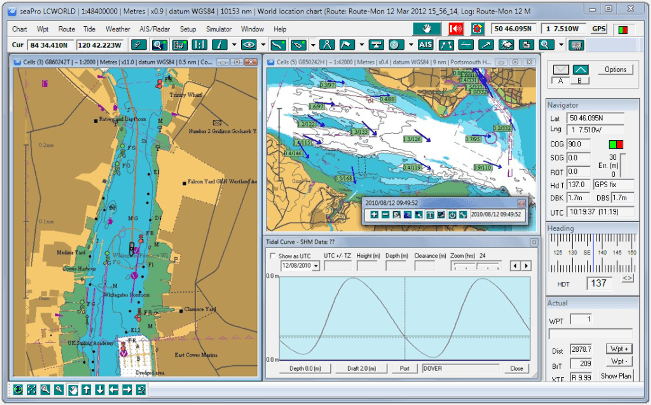

These days one can effectively track and monitor everything that one wishes to. A vessel tracking system, as the name suggests is a collection of equipments which enable marine and naval vessels to track, identify and monitor a ship’s position, location and any other detail that might be important in maneuvering and stabilizing a ship’s route and course.
In today’s highly revolutionized world of marine travel, a vessel tracking system plays a very important role by bringing about long range connectivity not only between ships and coast guards of nations but also among ships as well. Also, since the pioneering of the internet, many such vessel tracking systems have managed to incorporate internet connectivity as a part of their core objective thus providing a much better service.
There is a wide variety of vessel tracking systems that are available in the naval vessel market and each has its own unique feasibility. The most common among the wide array of vessel tracking system is the GPS. The Global Positioning System or as it is more commonly pronounced, the GPS is a vessel tracking system that has managed to attract and hold the attention of the widespread consumer market.


The GPS works on satellite transmission basis and is highly effective and authentic. The GPS as a vessel tracking system clearly pinpoints the position and the location of the vessel in the water which would come very much in handy if and when an inappropriate situation crops up. By using GPS, a vessel can clearly come to know about what routes to take, what courses to avoid and all other points that might be important and necessary for a ship in its navigation.
And by itself, while GPS is useful and important as a vessel tracking system, there are other vessel tracking systems which incorporate the facilities provided by GPS. A vessel tracking system like the Automatic Identification System (AIS) uses the GPS technology to aid and serve as transmission and receiving points using the VHF radio channels.
The AIS acts as a transmitting and receiving interference between ships and coast guards with the help of which not only location of a particular ship but also its position can be monitored. AIS is very helpful as it helps to prevent onboard collision, helps ships charter and alter their routes whenever and wherever necessary and in case of coast guards, helps them to find a ship that could be interfering or manipulating law.
There is also a vessel tracking system known as the Ship Loc which can be set up in vessels and which gives authentic readings pertaining to the location and position of a ship, the air pressure in the oceanic area its coursing through, the wave pressure and all other natural and man-made occurrences which are important for a ship’s navigation.
At present, even while a lot of ships use vessel tracking systems to monitor and pinpoint their courses, the technology has still not managed to reach far and wide. There are several constraints which affect the vessel tracking system preventing it from functioning optimally. Distance limits, satellite transmission problems are some of the core problems that affect the highly beneficial operation of the vessel tracking systems. However, if these limitations could be removed, then the idea behind the innovation of a vessel tracking system could pioneer naval voyages by enabling widespread connectivity among necessary channels as more and naval vessels would enforce the usage of a vessel tracking system.
Currently, keeping research and progress in mind, efforts are being made on a regular basis and up gradations to various vessel tracking systems are coming up frequently proving the reliability and dependability value of such technological advancements in the field of marine travel, which was till now, unutilised to its fullest.
You may also like to read Automatic Identification System.










We believe that knowledge is power, and we’re committed to empowering our readers with the information and resources they need to succeed in the merchant navy industry.
Whether you’re looking for advice on career planning, news and analysis, or just want to connect with other aspiring merchant navy applicants, The Marine Learners is the place to be.